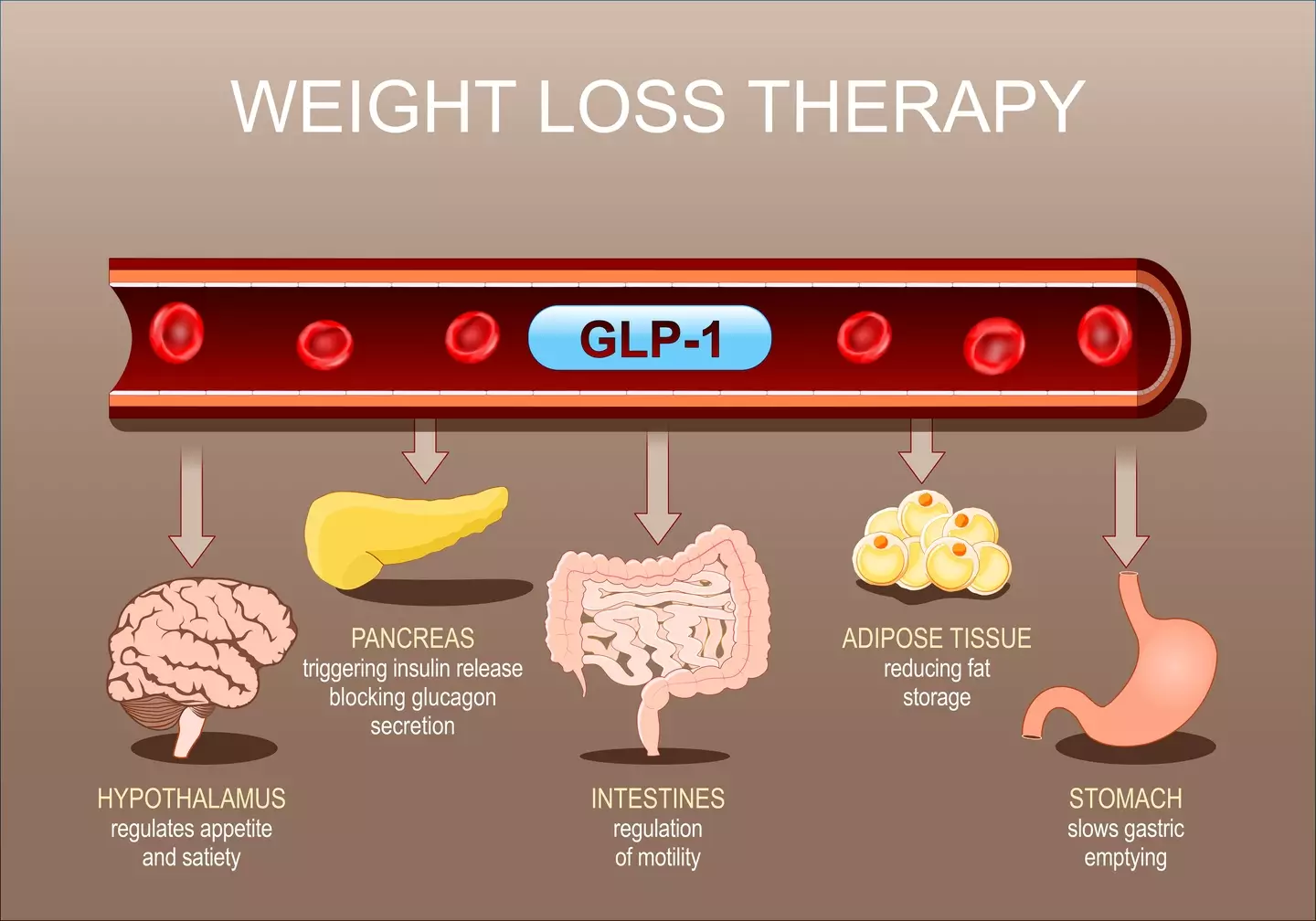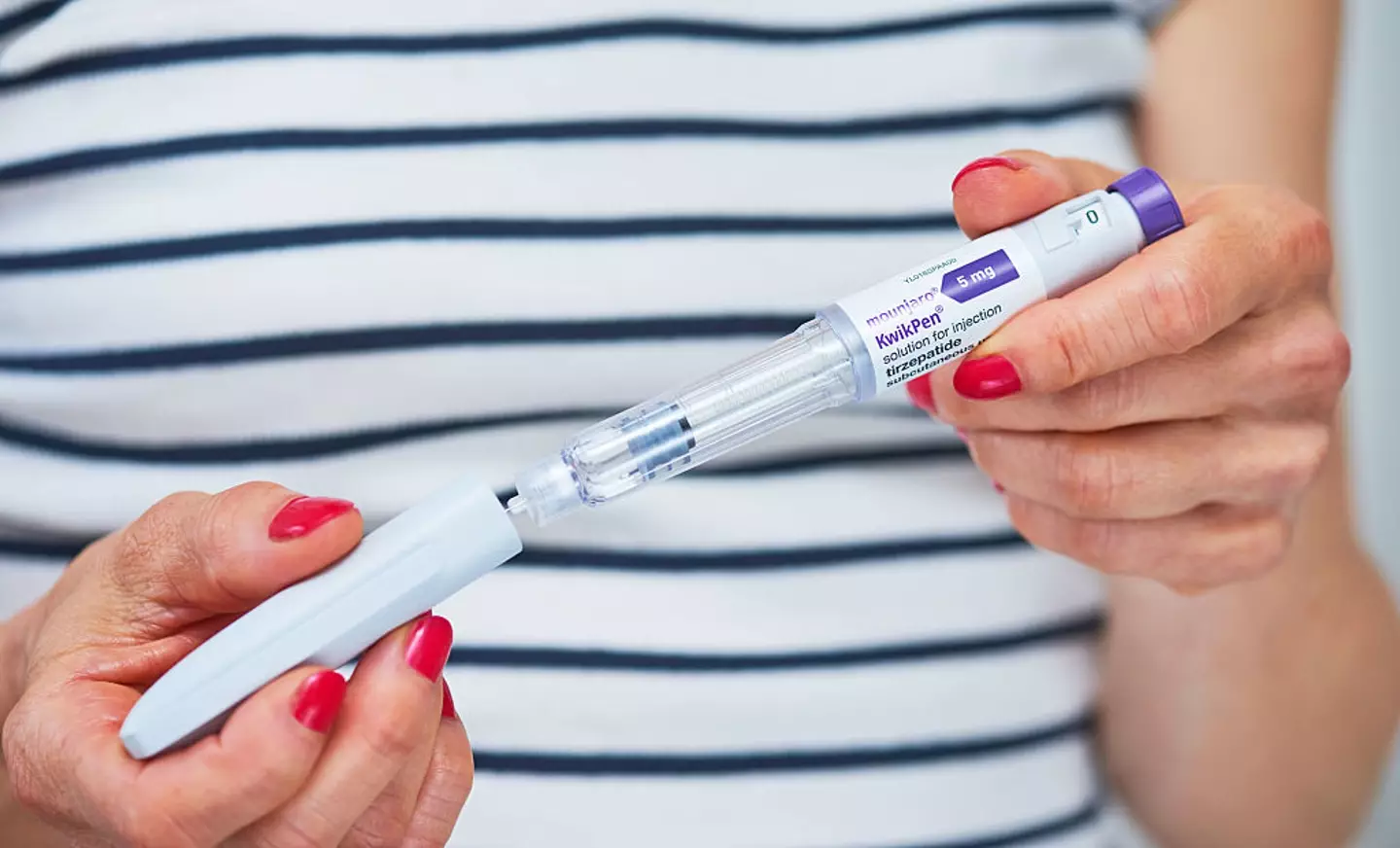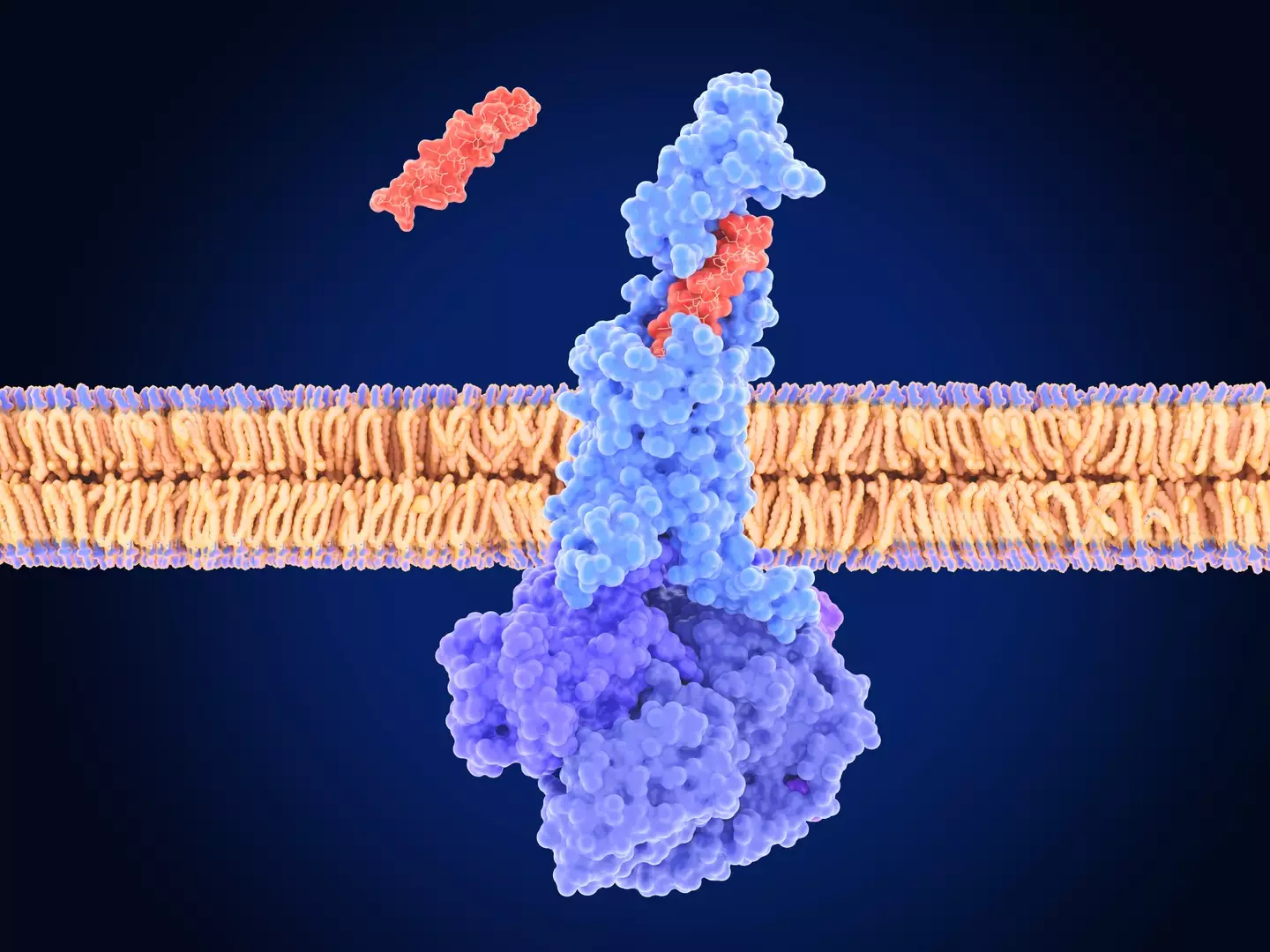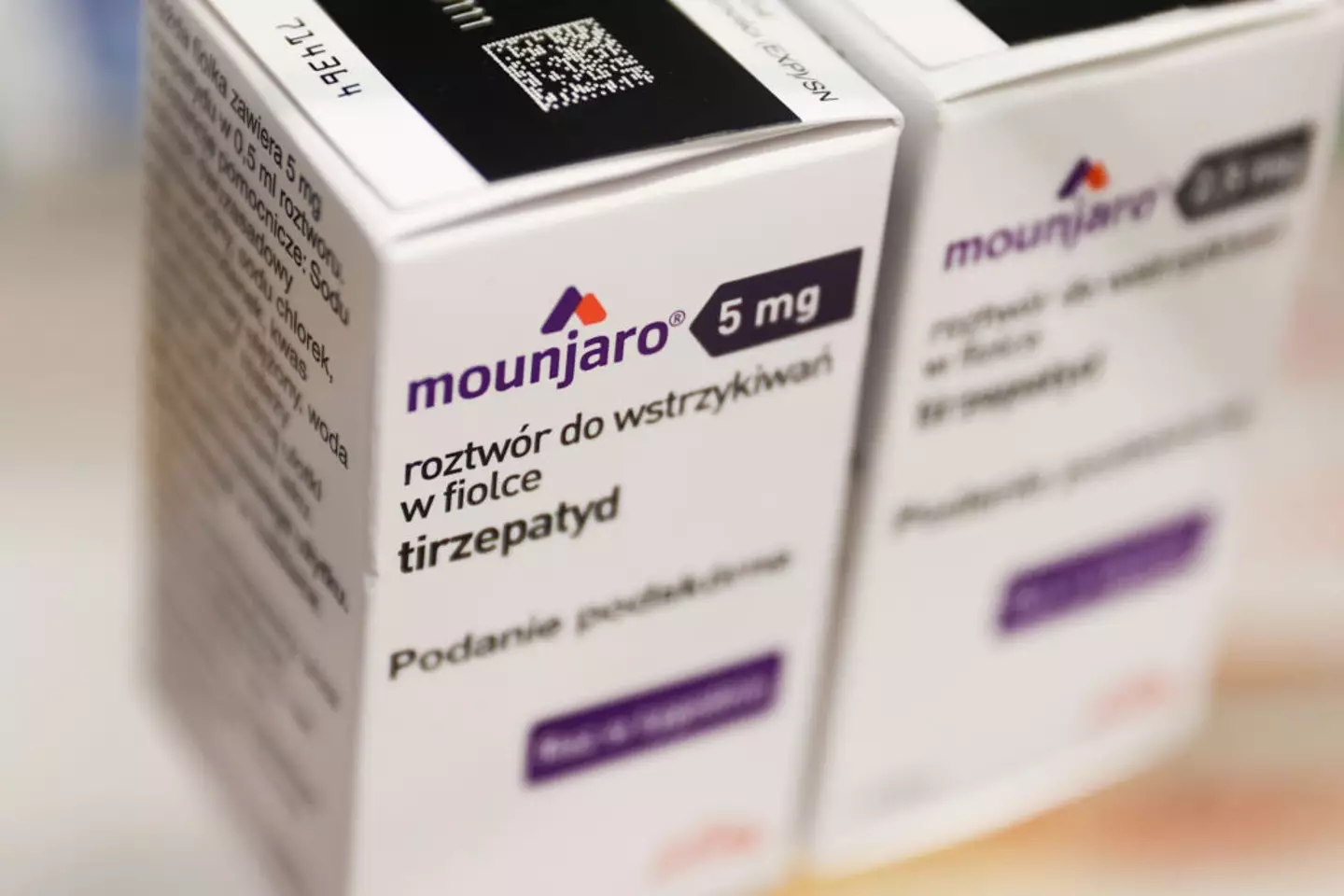
In the past year or so, Mounjaro and other GLP-1 medications like Ozempic and Wegovy have seen a serious surge in popularity as more and more celebrities and members of the public alike are taking the drugs for weight loss.
No doubt, popularity will continue to soar now that the drug is available on the NHS as of last month, a whopping 220,000 people expected to receive Mounjaro over the next three years.
While the drug won't be accessible to everyone who wishes to use it, those with the highest health risks and who meet the clinical criteria will be prioritised. However, it is also important to note that meeting the criteria does not necessarily guarantee access.
But how does Mounjaro, which was initially designed to help type 2 diabetes patients, actually work and what are the main reported side effects users need to be in the know about?
How does Mounjaro work?

Advert
Mounjaro is a weekly self-injectable pen used for weight loss. It contains tirzepatide which works by regulating blood sugar and energy balance levels, helping to reduce appetite and prevent cravings.
Boots Online Doctor explains that tirzepatide works on two different hormonal receptors: glucagon-like peptide-1 (GLP-1) and glucose-dependent insulinotropic polypeptide (GIP) - you may have heard of GLP-1 from other weight loss injections.
GLP-1 helps to regulate blood sugar levels, which in turn talks to the brain to make you feel less hungry and prevent cravings.
It also slows down the emptying of the stomach to keep you feeling fuller for longer.

GIP regulates energy balance in brain and fat cells, enhancing the GLP-1 effect of suppressing your appetite and improving sugar control.
"By mimicking the effects of both these naturally occurring hormones, Mounjaro has been shown to have greater weight loss potential than medicines that work on GLP-1 alone," the experts add.
What are the side effects of Mounjaro?
It's important, however, that anyone either taking the drug or thinking about taking the drug is well-aware of the 'very common' side effects of it.
According to Boots Online Doctor, the most common ones are gastrointestinal in nature: nausea, vomiting, diarrhoea and constipation.
"These are mainly seen with dose increases, and tend to settle with time," they experts note, adding that other common side effects could include fatigue, feeling lightheaded, excess wind (flatulence), gallstones, gastroesophageal reflux, injection site reactions and hypoglycemia in patients with type 2 diabetes.
In rare cases, there can be serious side effects, such as pancreatitis and anaphylaxis.
But as well as this, Mounjaro users have been noticing that they’ve also been shedding something else as well as the weight, which has even left some people battling self confidence issues.
The side effect in question is hair loss, as a series of conversations are popping up about the topic across social media.
What have Mounjaro users said about hair loss?

Beginning a conversation on Reddit in a thread dedicated to the GLP-1 medication, one user asked: “I am still losing so much hair. I had a full lush head of hair and now I have to fix my hair to cover bald spots. How long to recover?”
Someone else responded that they also ‘lost a ton of hair,’ which they first began noticing in their third month on the drug.
They wrote: “Mine has started coming back. I took Mounjaro for a year and lost 75lbs. I started noticing the hair loss around the 3rd month, and it didn’t stop falling out until my weight loss started to level out.
“Once the weight loss levelled out and became less drastic, the hair loss began to slow down as well.”
Meanwhile, someone else reassured: “It does. I lost about HALF of my hair and was really worried I’d end up wearing a wig but it’s all growing back now.”
And another user penned: “I was losing hair like that and from my last dose it took 4 months to go back to normal."
Why do some people on Mounjaro suffer from hair loss?

So, the question is, why is this happening?
Well, although it’s linked to it, it’s not actually the medication itself that’s causing it, but instead a condition triggered by the jabs.
If you’re losing weight rapidly, this can cause telogen effluvium - rapid but temporary hair loss caused by stress or a change to your body.
This can also be a sign that you are losing weight too quickly.
In simple terms, your body is being put under stress and undergoing a very sudden change when you drop a lot of weight in a short space of time.
This causes your hair follicles to enter their resting and shedding phase of the hair growth cycle, leading to hair loss.

Your body is too busy prioritising more important jobs, like organ function, metabolism, and immunity, reports Simple Online Pharmacy.
But, as seen in the Reddit thread, this is only temporary, and the hair loss should come to a halt once your weight stabilises.
Pharmaceutical firm Eli Lilly told Tyla: "Patient safety is Lilly’s top priority. We take any reports regarding patient safety extremely seriously and actively monitor, evaluate, and report safety information for all our medicines.
"The Mounjaro (tirzepatide) Patient Information Leaflet warns that hair loss is a common side effect in patients treated with Mounjaro for weight management. We encourage patients to consult their doctor or other healthcare professional regarding any side effects they may be experiencing and to ensure that they are getting genuine Lilly medicine."